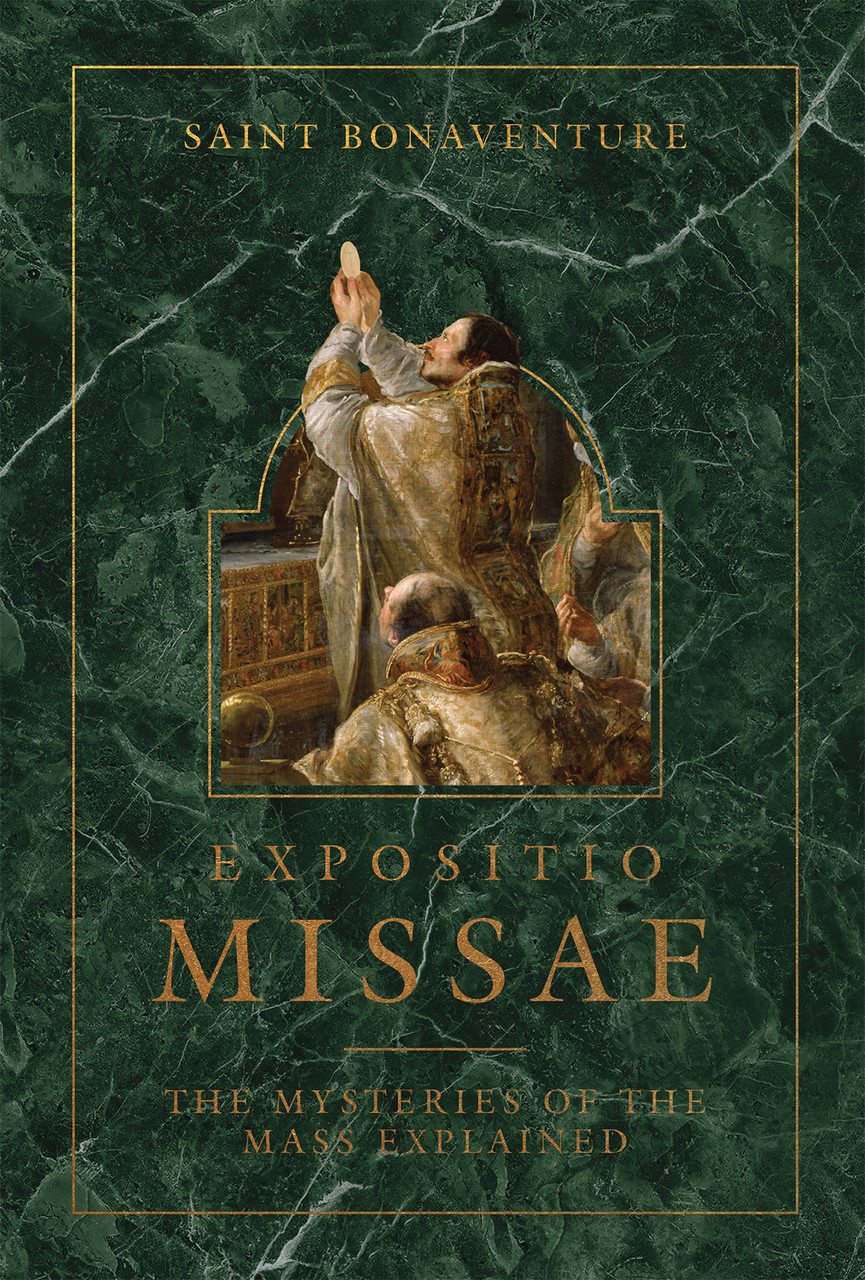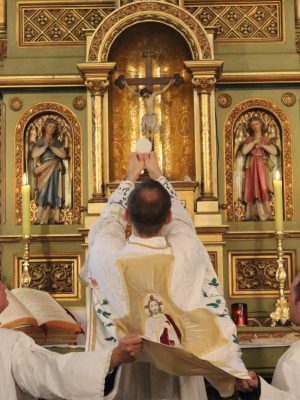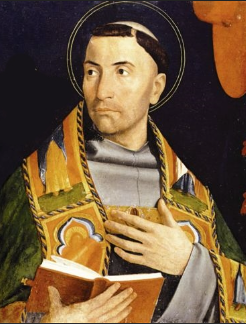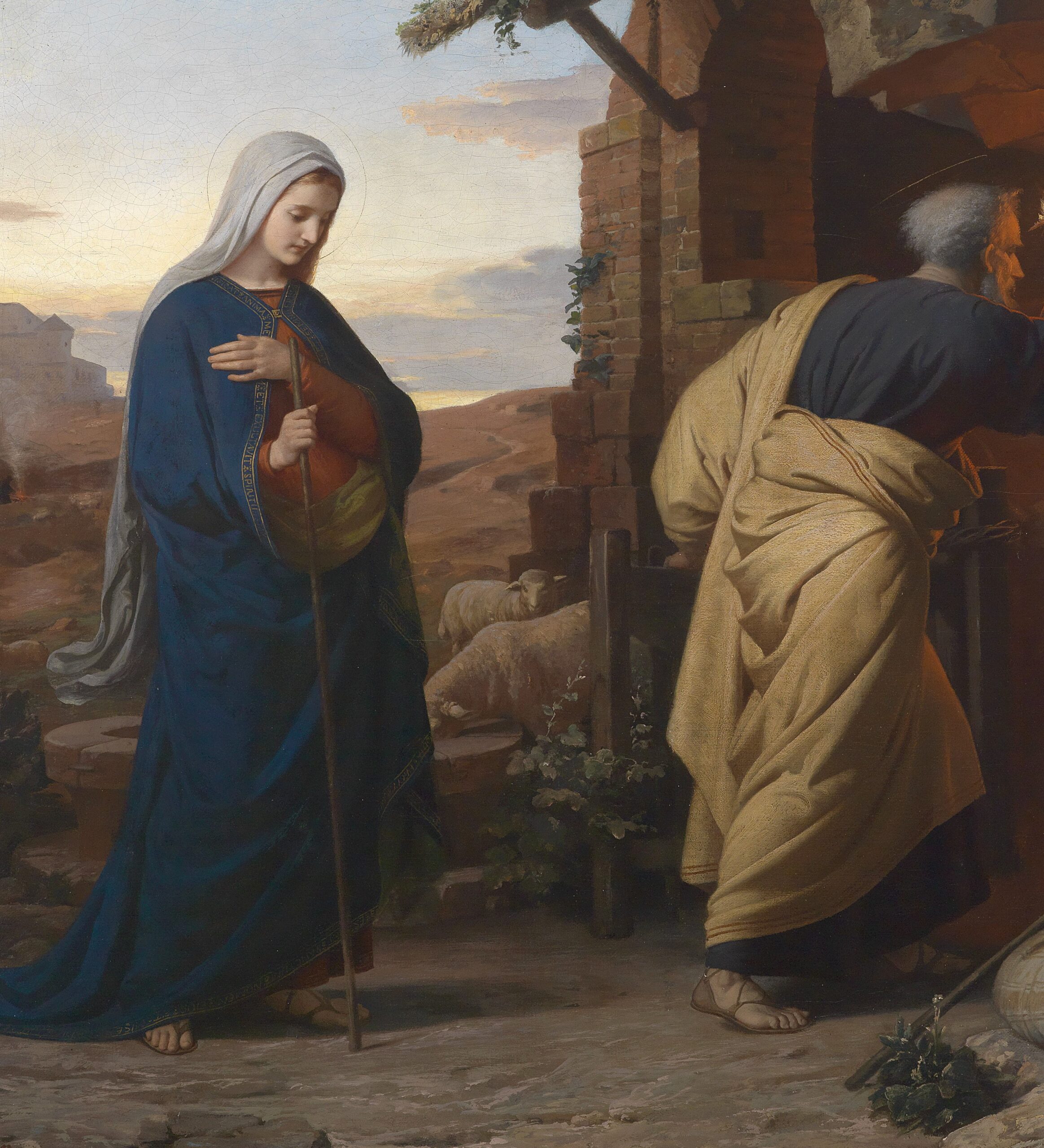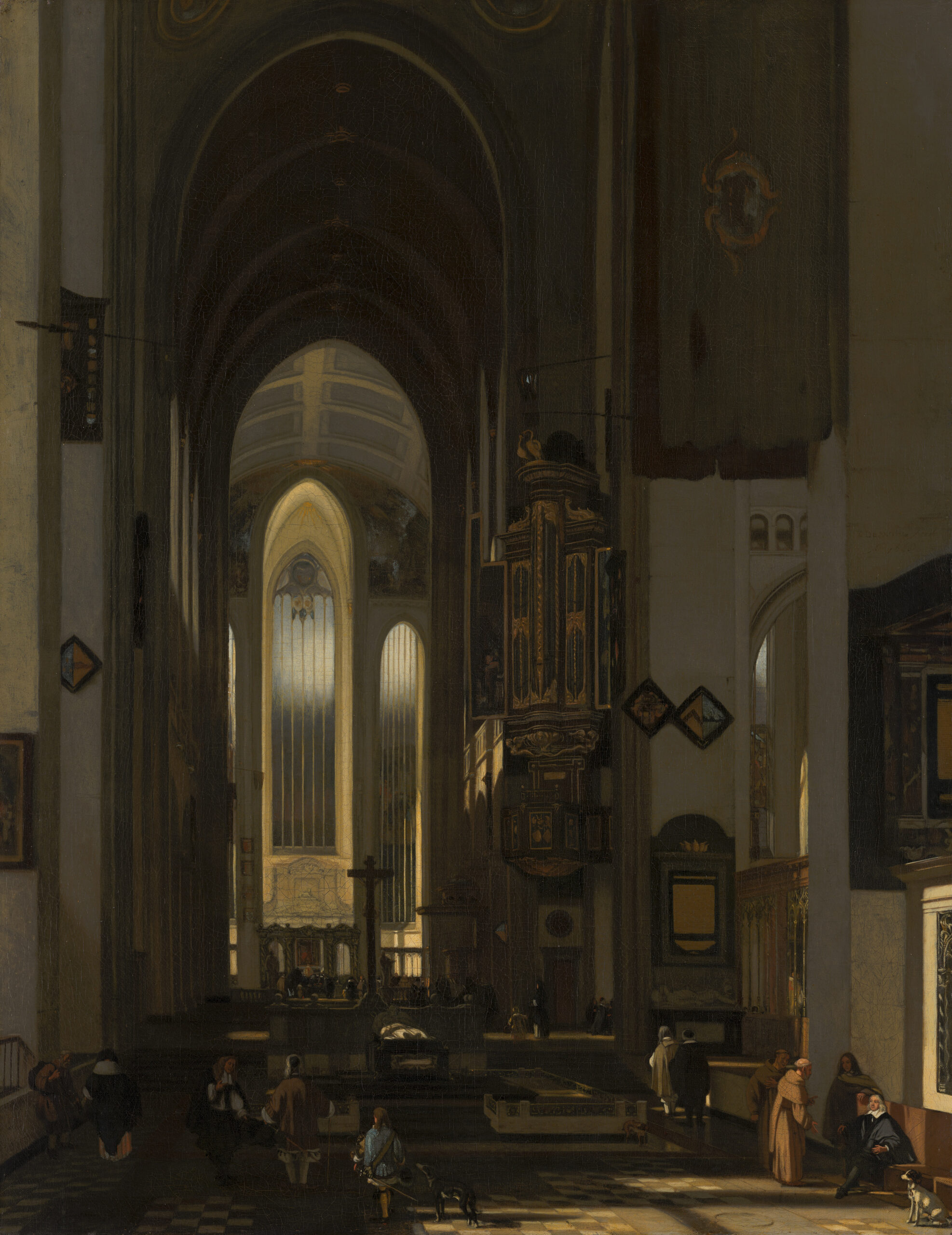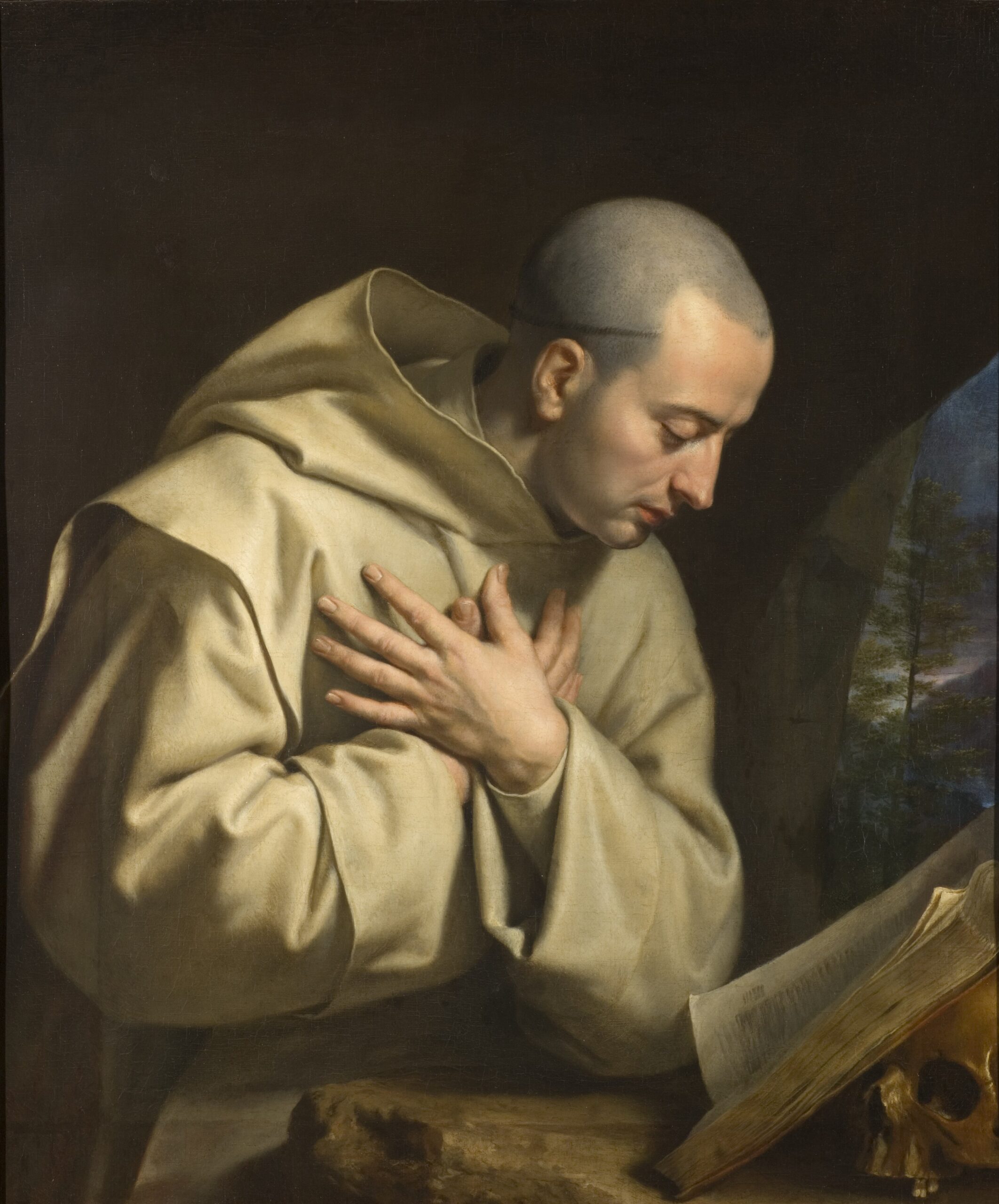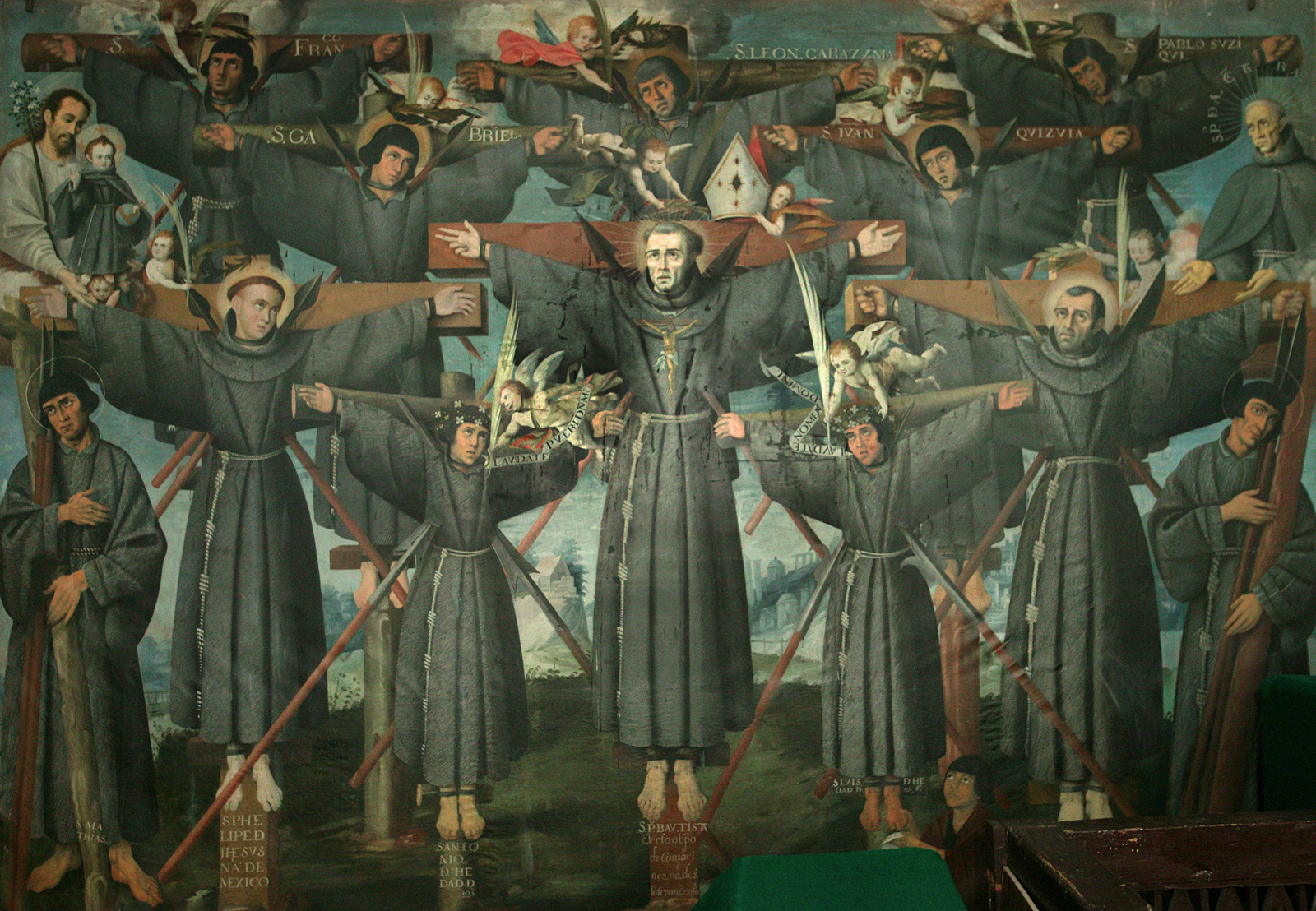Understand the prayers and gestures of consecration with this beautiful excerpt from Expositio Missae by Saint Bonaventure.
Words of Consecration
Who, the day before He suffered,
took bread into His holy and venerable
hands, and with His eyes raised to
heaven, unto You, God, His almighty
Father, giving thanks to You, He
blessed it, broke it, and gave it to His
disciples saying:
Take, all of you, and eat of this.
FOR THIS IS MY BODY.
In like manner, after He had supped,
taking also this excellent chalice into
His holy and venerable hands, and again
giving thanks to You, He blessed it,
and gave it to His disciples, saying:
Take, all of you, and drink of this:
FOR THIS IS THE CHALICE OF MY
BLOOD OF THE NEW AND ETERNAL
TESTAMENT: THE MYSTERY OF
FAITH: WHICH SHALL BE POURED
OUT FOR YOU AND FOR MANY
UNTO THE REMISSION OF SINS.
As often as you shall do these things,
you do them in memory of Me.
Reflection
In these words, the Holy Trinity, together with the priest, truly blesses the bread and wine—by a miraculous, hidden, and ineffable blessing—thus changing (mutando) them into the true Body and Blood of Christ. This happens as the phrases Hoc est enim corpus meum, and Hic est calix sanguinis mei are pronounced. It is to be noted that the priest holds his hands extended, toward both corners of the altar. In this way, he physically forms the image of a cross, representing the crucified Christ and calling to mind the sacrifice of His passion. The fact that his hands are extended toward both sides of the altar (which represent the Jewish and Gentile peoples, respectively, as has been previously noted) expresses the fact that Christ died for both these peoples—that is to say, for all humanity. For He came to lead the Jewish people back to the way of righteousness and truth, and to establish the Catholic faith among the Gentiles. It now behooves us to consider why it is that the priest elevates the Body of Christ above the altar, so that it is visible to all who are present. Indeed, there are many mystical reasons why the most holy Body of Our Lord is elevated during the Mass.
5 Reasons for the Elevation
1st Reason
The very first of these is to obtain the grace of God the Father, which through our sins and iniquities we lose. By sin alone is God offended and angered, as is expressed by the psalmist: “They angered God by their doings.” The priest therefore elevates the Body of Christ to God the Father, as if saying, “O heavenly Father, we have sinned and thereby provoked You to wrath. But now look upon the face of Your Christ, which we now offer to You in order to turn You away from Your anger, toward mercy instead. Turn not Your face from Your Child—that is, Your only begotten Son—and remember those words You once spoke to Him, ‘This is My beloved Son, in Whom I am well pleased.’ Therefore, O Lord, correct in us mercifully whatever You find in need of correction. Turn us to Yourself, and avert Your wrath away from us!”
2nd Reason
The second cause of the elevation of the Host is to implore and obtain those good things which are necessary for us during this present life. The first good thing which we are in need of in this mortal life is peace [that is to say, reconciliation] for our sins, which no one is able to obtain unless he has been freed from his mortal sins by the grace of God. This reconciliation is the peace of which Christ spoke when He said, “My peace I give to you.” The second good thing of which we stand in need is charity, for this virtue causes us to flourish in both the present and the future life. For charity properly directs each person’s life in this present world in such a manner that it shall lead to the attainment of the glory of the future, eternal life. Hence it is that the apostle Saint John declares that “He who remains in charity, remains in God.” Therefore, when the priest elevates the Host, it is as if he is announcing to all those present, “If you wish to obtain that which your hearts most truly desire, then seek to maintain mutual charity. For Christ, through His death, has reconciled us to God and the angelic host; and, through the virtue of charity, has opened to us access to joys which endure forever.”
3rd Reason
The third reason for the elevation of the Body of Christ is to remind us of that which is our right and our inheritance; which we already possess in our hearts in firm hope, and shall possess in the future in concrete reality in the heavenly kingdom. This inheritance that we shall receive in heaven is nothing other than life eternal. Hence it is that John, in his Gospel, records the words of Christ, Who said, “I have come into the world, so that they” [that is, those who imitate Him] “may have life” [that is, may have life in this present world] “and have it more abundantly” [that is, so that they may possess eternal life in the world to come]. This glorious inheritance of ours has been faithfully recorded and indelibly inscribed with a pen of iron—that is to say, with the lance which pierced the side of Our Savior, and the nails which were driven through His hands and feet. Hence it is that when the priest elevates the Body of Christ over the altar, it is as if he proclaims, “O you angelic spirits, who are here present among us, you are witnesses of the lawful inheritance which has been promised to us, which is eternal life. And to confirm and testify to this, we hold aloft the pledge which has been given to us, which is the Body of Christ, Who for our sakes did suffer and die!”
4th Reason
The fourth reason for the elevation of the Body of Christ at this point is to display the power of God. Great indeed is the power of God, for by the mere pronouncement of the words, “This is My Body,” He is able to transubstantiate common bread into His true flesh! This is what is referred to in the psalm as the “mutation of the right hand of the Most High,” and entirely transcends our human comprehension. Thus when the priest elevates the Body of Christ, it is as if he is saying, “Just before, you perceived mere bread upon the altar, but now that the words of consecration have been uttered, behold, here is the true Body of Christ! And if God is able to bring about such a wondrous transformation in this bread, He is certainly able to transform our sins and faults into grace, and finally into eternal glory!”
5th Reason
The fifth reason why the Body of Christ is elevated is to declare and exhibit the astounding wisdom of God. With wondrous wisdom, which surpasses all words, Christ displays Himself to us in a hidden form. Of this hidden form, the prophet Isaiah says, “Truly, You are a God Who is hidden, O God of Israel, Our Savior!”
ooo
This article is taken from a chapter in Expositio Missae by St. Bonaventure which is available from TAN Books.
